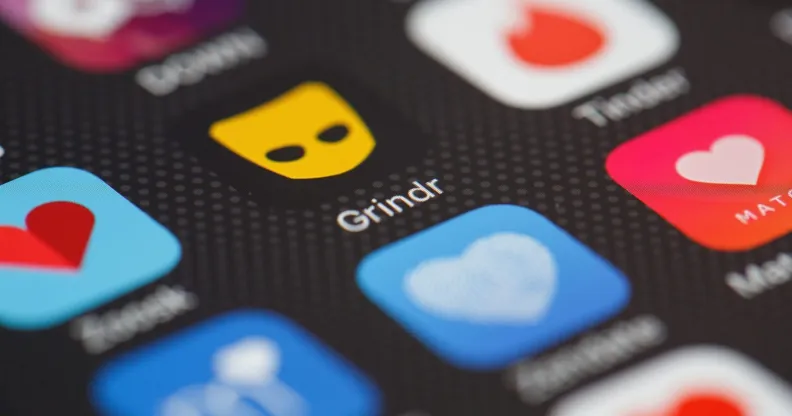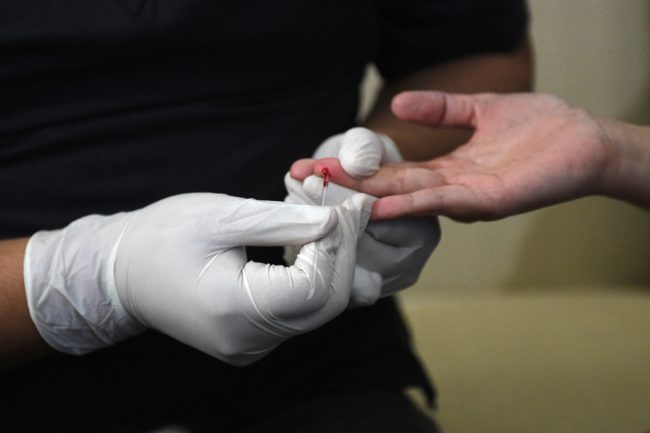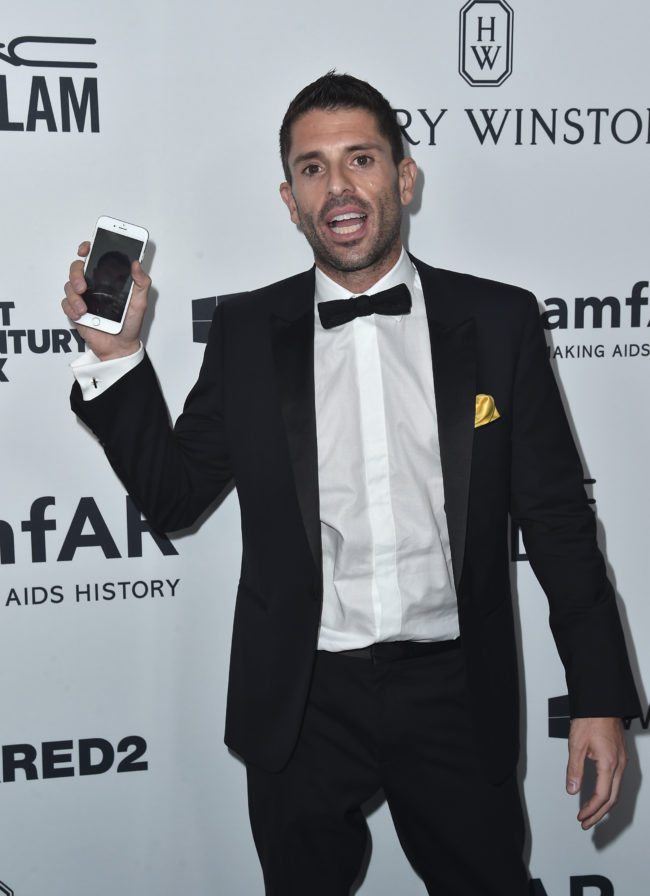Grindr starts sending HIV test reminders to users

LGBT+ dating app Grindr (CHRIS DELMAS/AFP/Getty)
Grindr is going to start reminding users to take regular HIV tests in a bid to tackle the spread of AIDS.
The dating app will also let some clinics and test centres advertise for free on the platform as part of an effort to reduce HIV transmission.
Jack Harrison-Quintana, the company’s director for equality, told the New York Times they wanted to “support our whole community – regardless of HIV status – in living long and fulfilling lives”.
In 2016, nearly 37 million people worldwide were living with HIV, according to figures from the World Health Organisation (WHO), with sub-Saharan Africa worst affected.
Grindr claims to have about 3.6 million daily users from every country and is the world’s largest dating app.

An HIV blood test (TED ALJIBE/AFP/Getty Images)
A software update due to go out this week will allow users to opt-in for reminders every three to six months to get tested.
Discreet notifications will be sent to their Grindr inboxes advising where they can find their nearest “non-judgy” clinic.
Perry N. Halkitis, an LGBT health expert, said the move would “demedicalise” and “destigmatise” testing. “The more you make it normal, the more people are going to access it,” he told the New York Times.
Related: How to see if someone has blocked you on Grindr: App loophole allows users to see all
Building Healthy Online Communities, a US group of public health leaders and gay dating apps, backed the change.
Director Dan Wohlfeiler said: “Grindr’s making it as easy to get tested as to find a date.

Joel Simkhai, CEO and founder of Grindr (Photo by Alberto E. Rodriguez/Getty Images)
“Getting tested regularly for STDs, including HIV, is one of the most important things a guy can do for his own health, and his partner’s.”
The update, which will be rolled out in the US first, follows the launch last spring of a section on user profiles where they can include their HIV status and the date of their last test.
Related: A comprehensive guide to Jack’d, Grindr, Hornet, Scruff and the rest
The app also now translates health information into Spanish for Latino users in the US who experts say face a language barrier which affects HIV rates in the community.
The US’s Centers for Disease Control and Prevention recommends annual testing for sexually active gay and bisexual men, though it says more regular checks may be necessary in some circumstances.

